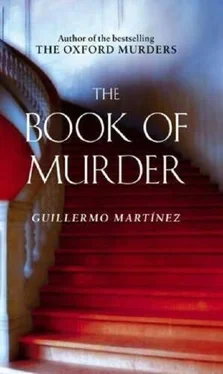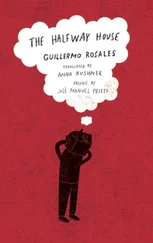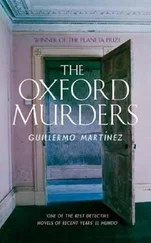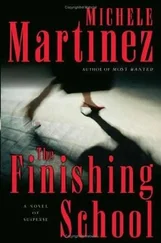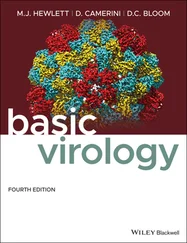I couldn’t even contemplate phoning him and saying my name. He’d hang up before I could get a sentence out. I thought of increasingly crazy possibilities: turn up at his door, engineer a meeting in the street, give a false name and pretend to be a journalist. But even if I cleared the first hurdle, even if I managed to enter Kloster’s fortress of fame and we exchanged a few words, how on earth could I talk to him about Luciana, broach the real subject, without the conversation’s ending before it began? I fell asleep, annoyed with myself for having got into a mess that wasn’t mine and that I was desperate to get out of. Why did I say yes when everything inside me was saying no, I wondered again. We always treat women too well, as Queneau might have said. Even their ghosts, I thought in the oppressive darkness of my bedroom, unable to picture the face of the real Luciana from ten years ago.
I awoke the next day feeling as if I’d had a drunken night out but that, despite the hangover, my senses and my equanimity had been returned to me. In the warm, familiar sunlight coming through the window, I felt myself swing towards scepticism, and the suspicion that I’d been ensnared in a series of careful lies told by an apparition from the past. Desperate for caffeine, I went out to have breakfast in a bar, and as I reviewed Luciana’s story in search of contradictions and errors I realised, with that same lucid calm, that if I had now decided to doubt what I’d heard, it was mainly to get out of this ludicrous mission.
I didn’t have classes that Monday, but I had to go to El Bajo to collect the tickets for my flight on Wednesday to Salinas, where I was to give a postgraduate course at the Universidad del Oeste. The offices of one of the newspapers for which I’d once written reviews were also in El Bajo. I decided that before doing anything it would be worth consulting the archives to confirm the most salient facts, at least.
When I got to the old building by the river, I too felt like a ghost haunting a place that no longer existed. Like a cathedral under restoration, the façade was unrecognisable, hidden behind scaffolding. I searched for the entrance amongst temporary signs and boardwalks. Someone who had come outside to smoke greeted me from a distance without much surprise or enthusiasm; I returned the greeting automatically, not entirely sure who it was. Inside the receptionists were new, but the basement where the archives were kept was unchanged, as if it was too difficult to shift the past. I went down the stairs and again breathed in the smell of damp exuded by the peeling walls, and felt the sagging floorboards creak beneath my feet, betraying my presence. I was alone down there and assumed the librarian had gone for lunch. I searched the shelves myself. The first three deaths had taken place before newspapers were digitised but I soon found the box files containing the copies for each year. I almost missed the first item as it occupied only a tiny space at the bottom of a page. Headed ‘Lifeguard Drowns’, the article didn’t mention Luciana. It simply stated that the rescue operation had been unsuccessful, and that cold and exhaustion had caused the young lifeguard to suffer massive cramps, despite his being very fit. That was all, with no further details the following day. I supposed that no one in the resort wanted to publicise a drowning at the start of the season.
The item about her parents’ poisoning, on the other hand, near the end of the next box file, took up over half a page. There was a rather blurry photograph of a tree with some fungi beneath it, and a comparative diagram of Amanita phalloides and an edible mushroom. An arrow indicated where the volva had become detached, as Luciana had explained. The article mentioned that the couple had three children, but that none of them was with them at the house at the time. It didn’t give their names, and Luciana’s surname was so common that I wouldn’t have registered the item even if I’d read it back then. There was a slightly shorter article the following day, explaining that a search of the little wood had confirmed the presence of the poisonous species. It mentioned how spores could be carried considerable distances on the wind and warned of the dangers of amateur mushroom gathering.
I took the articles to the photocopier, and as I inserted coins and watched the beam of light pass over the pages I had the feeling that an idea, as yet unformed, was trying to emerge, like an elusive animal lurking-about to brush past, about to flee-in that silent basement. On impulse I returned to the rows of files and searched for reports of the fourth death. The progression here was in reverse: the story began with a tiny item lost in the Police Reports page, but then, as the political implications became apparent, it had taken up more and more space until it featured on the front page. I read the first day’s article, as yet without photographs. The killer had apparently been waiting for the doctor late at night, at the entrance to his building, and had held him up at gunpoint. Luciana’s brother hadn’t put up a fight, perhaps believing it was just a mugging. They’d gone up in the lift to his apartment. Neighbours had heard a terrible commotion and the doctor shouting. Someone had called the police. The door to the apartment was open and the man’s revolver was in plain view on a shelf, as if he’d put it down there as soon as he entered. The doctor’s body lay in the middle of the sitting room, his eyes gouged out and a huge wound on his neck, possibly caused by a bite. The police had found the killer on the roof of the building, his mouth smeared with blood. When they managed to unclench his fist they found he was gripping the doctor’s eyeballs, crushed to a pulp. In his statement he said he had wanted to throw them in his wife’s face before killing her.
I looked for the next day’s paper. The story now occupied over half a page. It turned out that the arrested man had already been sentenced to life in a high security prison, but nobody could explain how he’d got out. There was a photograph of him looking straight at the camera, eyes empty of all expression, probably his police mug shot: a wide forehead, bald with narrow strips of hair above his ears, a sharp nose, plain ordinary features that gave no hint of murder or butchery. The post-mortem had revealed a few more details. The murderer had used only his hands and teeth; the victim had barely resisted, failing to land a single blow. The killer was famous in prison for letting his nails grow long, and had already blinded another inmate in a fight. It hadn’t been established whether the doctor had still been conscious when he’d had his eyes gouged out. In any case the cause of death was severing of the jugular vein. The report also stated that the doctor had been having an affair with the convict’s wife, whom he’d met when she was visiting her husband in prison, but there was no mention of the anonymous letters Luciana had told me about.
I looked at the next day’s paper. The story had now reached the front page. Apparently the inmate hadn’t escaped, he had been let out by guards to commit a burglary. The Ministry of the Interior had intervened and the head of the prison service was expected to resign imminently. The investigation had changed hands and was now being conducted by the same Superintendent Ramoneda that Luciana had mentioned. Even so, as I read this article-by far the longest-I felt that the trail was fading; that, as in the children’s game, I was getting cold. No, this definitely wasn’t what I thought I’d glimpsed. There was something earlier which I had missed again as I read. I took the first day’s article to the photocopier and then I went to one of the desks and set out all three copied stories. I read them again, one after the other. Almost nothing seemed to connect them, other than Luciana’s account. The dates were unevenly spaced: the first two incidents had taken place within a year, but the third had occurred three years later, and now four years had elapsed since anything had happened. There seemed, at any rate, to be a slowing of the pace of killing. Nor was there any obvious pattern linking them, discernible ‘from the outside’. There was even an aesthetic inconsistency: if the first two cases were to a certain extent reminiscent of the kind of subtle murder Kloster devised in his novels, the third-brutal, bloody-was quite unlike his style, his literary style at least. Though it might, of course, be part of the plan, and an obvious precaution for some of the deaths to be very different from those in his books. I recalled Luciana’s anxious voice the first time she called me: nobody knows, nobody realises. No, nobody knew, nobody realised, though all three cases had been in the papers, though the deaths were there, in plain sight, and one of them had caused quite a scandal. But was there really nothing to link them? A moment earlier, I thought I’d seen something, something that now eluded me but was nevertheless still there. Suddenly I thought I had the answer, though it didn’t seem to be of much use. It was something Luciana had said when describing her brother’s death. With his bare hands. The article on the first day also mentioned it: the killer had put down his gun and used only his hands and teeth. I sensed that this was it but, as if the scarcely glimpsed figure had once again melted away, I still couldn’t fully see the connection. And what significance, if any, did it have? Even if I accepted that Kloster was behind the deaths, even if I accepted that he had written the anonymous letters, of which there was no mention in the articles, there didn’t seem to be any way that he or anyone else could have foreseen that the killer would put down his gun and use only his hands. Or was there some prison code I was unaware of by which killing face to face, with bare hands, was the payback for infidelity? I resolved to find out. Anyway, simply by following Luciana’s brother, Kloster could have found out that he was having an affair with the convict’s wife, but it was much more unlikely that he would also have known that the prisoner, serving a life sentence, was allowed out to commit burglaries.
Читать дальше
